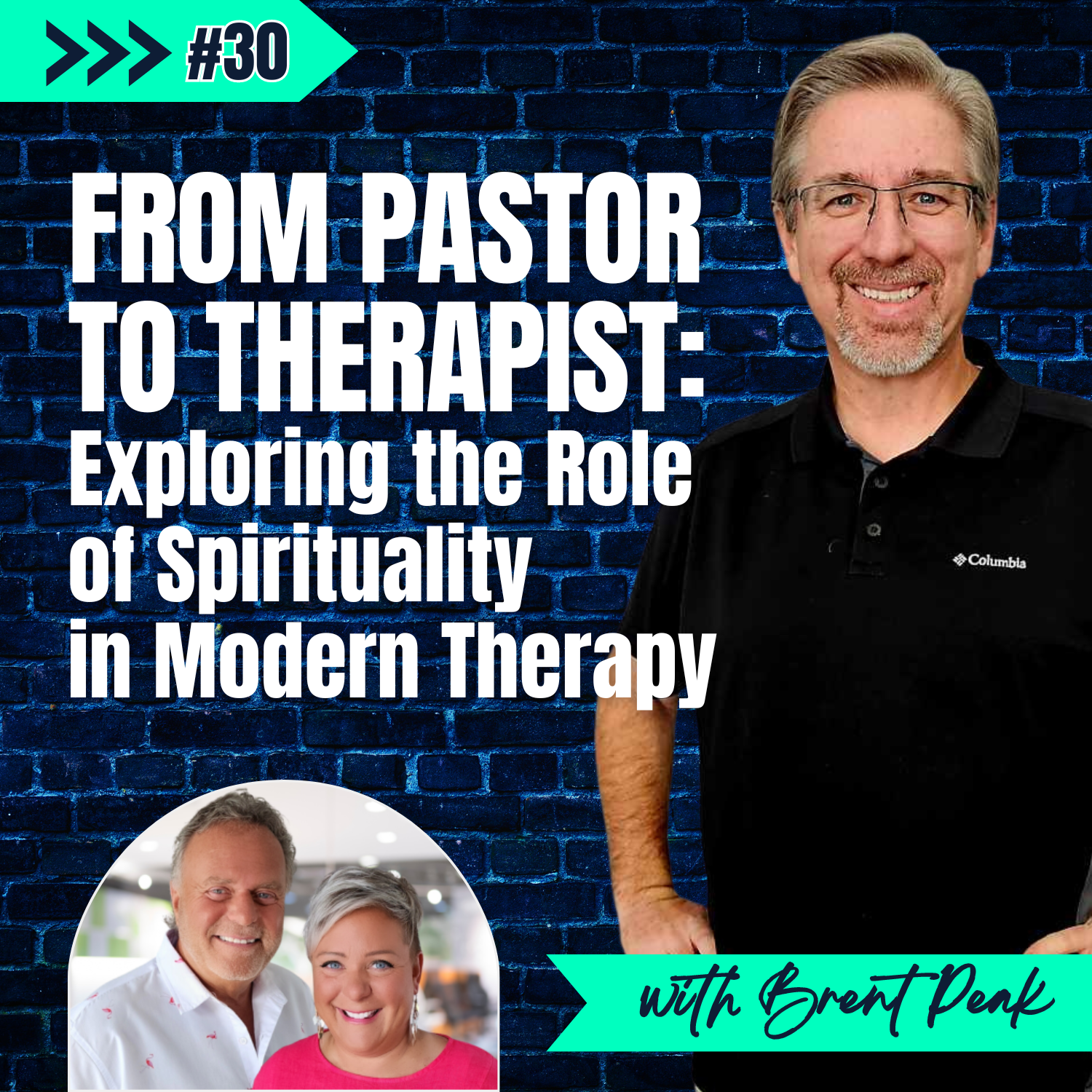E30: From Pastor to Therapist: Exploring the Role of Spirituality in Modern Therapy - with Brent Peak
Can Therapy and Spirituality Coexist? Absolutely — Here’s How
Faith and mental health are often talked about as if they live in separate worlds — one focused on the spiritual, the other on the psychological. But Brent Peak’s journey from pastor to therapist shows us how much richer healing can become when the two are allowed to intersect.
The Shift from Religion to Therapy
Brent’s path began in Baptist ministry, where faith guided every aspect of his work. Over time, he felt called to something broader: a practice that still acknowledged spirituality but wasn’t confined by the boundaries of organized religion. This shift allowed him to explore a more open, inclusive approach to healing — one that could hold space for clients regardless of where they fall on the spiritual spectrum.
Where Faith and Therapy Meet
Brent’s current work blends evidence-based practices like embodied trauma recovery, neuro-linguistic programming, and hypnosis with a deep respect for a client’s spiritual experiences. This integration allows him to:
Validate personal beliefs without imposing them.
Help clients use their spirituality as a source of strength.
Provide a safe space for those processing harm from religious environments.
It’s a delicate balance — honoring faith where it brings healing and carefully untangling it where it has caused harm.
Why This Matters
In a time when many are questioning traditional institutions, spirituality remains a powerful force for meaning and resilience. Brent’s approach reminds us that therapy doesn’t have to exclude faith — it can transform it into a tool for healing. By holding space for belief without judgment, therapists can help clients reconnect to their values in a way that supports mental and emotional well-being.
Try This at Home: Reflect on Your Own Framework
Define your terms: How do you distinguish between religion and spirituality in your own life?
Identify what supports you: Does a sense of higher power or purpose help you through challenges?
Consider integration: Would you want your spiritual experiences acknowledged in therapy, or kept separate?
Explore self-compassion: Regardless of belief, how can you practice kindness toward yourself in moments of struggle?
The takeaway: Healing isn’t one-size-fits-all. For some, spirituality is central; for others, it’s irrelevant or even painful. The key — in both therapy and life — is creating space for authenticity, curiosity, and connection, wherever you find meaning.
How to Connect with Brent Peak
To access some of Brent’s free resources or to work with him directly, visit brentpeak.com.
